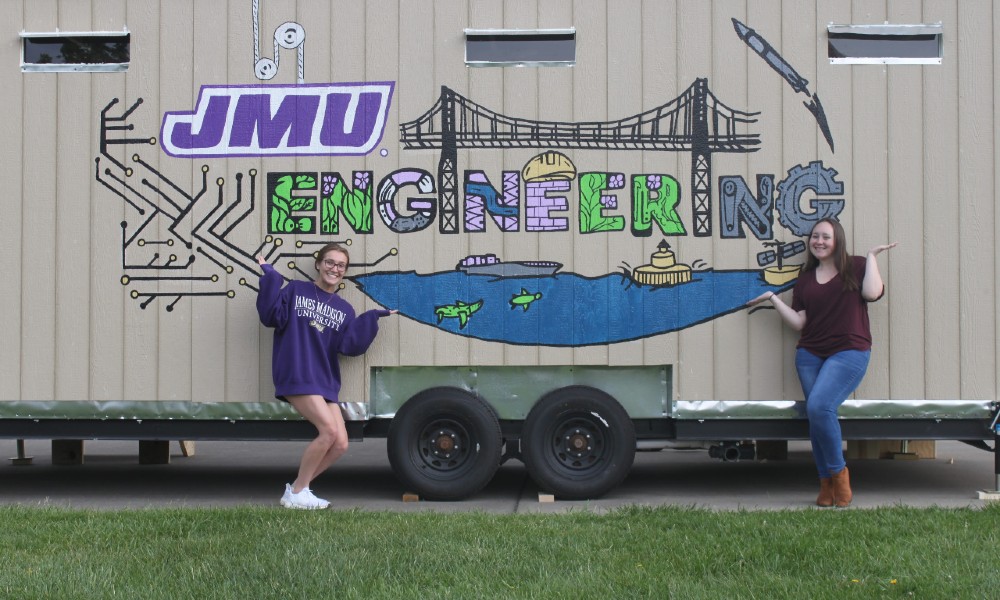Engineering introduces three new concentrations
Civil and Environmental, Electro-Mechanical Systems, and Geo-Environmental
News
JMU Engineering has always allowed students to explore various engineering disciplines and the interdisciplinary space between them. Recently, the program made a significant addition designed to enhance student flexibility and choice. Students can now take 15 elective credits instead of nine, giving them greater control over their academic journey and the opportunity to tailor their degree to their interests and career goals.
The introduction of these new concentrations is an exciting opportunity for our students. It allows them to combine elective classes and earn a concentration in one of three areas: Civil and Environmental, Electro-Mechanical Systems, and Geo-Environmental. These concentrations, offered as part of the ABET-accredited Bachelor of Science in Engineering, provide a focused and specialized path within the broader field of engineering, enhancing students’ knowledge and skills without increasing the total number of required credits.
“The new concentrations are not a requirement to complete the degree,” explained Daniel Castaneda, Engineering program director and professor. “Our students can continue to sign up for any of our engineering electives; we now have over 15 elective classes ranging from Brewery Systems, Concrete Infrastructure, Embedded Systems Design, and much more. Students who opt into a concentration can now communicate to a prospective employer that they have completed an engineering program with a specific concentration, which some employers are looking for.”
This approach ensures that graduates are well-rounded individuals with the diverse skill sets needed to start a career in any engineering field.
The Civil and Environmental concentration offers several classes exposing students to how engineers approach the design of the built and natural environments. “Some of our classes will focus on structural engineering, like using building codes and design specifications,” Castaneda said. “Other classes in the concentration will focus on water resources engineering, like surveying topographies to understand watersheds in stream restoration design.”
The Geo-Environmental concentration is a partnership between the Engineering and the Geology and Environmental Science departments and developed to address the growing demand for geological engineers in the manufacturing and utilities industry. Courses will provide students with the skills to analyze geological factors and mitigate the environmental impacts associated with engineering projects and the safe and efficient disposal of waste. “Our collaboration with the Geology program highlights the potential to create learning opportunities for students to pursue careers that require more than a single disciplinary approach,” said Bayo Ogundipe, head of JMU’s Engineering department.
The Electro-Mechanical Systems concentration “is geared toward designing, building and analyzing interconnected systems,” explained Shraddha Joshi, Engineering professor. Courses at the intersection of mechanical engineering, electrical engineering, and computer engineering underpin this new concentration and include autonomous vehicles, robotics, the Internet of Things, cars — any system that involves mechanical, electrical or computer components.
Students can learn from faculty members who specialize in each concentration. “It allows us to draw upon our decades of training and to teach students who want to learn more about that discipline within engineering,” Castaneda said.
The new concentrations aren’t just for incoming first-year students. Faculty are working hard to accommodate rising sophomores, juniors and seniors interested in pursuing a concentration before graduation. “If students have questions, they should contact their academic advisor for more information,” Castaneda added.
